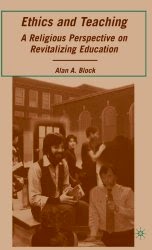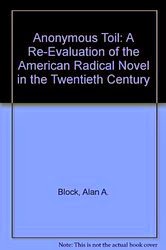There is a considerable mention of food—and its absence—in Genesis. When food is absent, usually in the occasion of famine, hardship results and no meals can be prepared. In this case carelessness is of no concern! But when the food is available, then it must be prepared, and there are several significant meals described in Genesis. From the beginning food was a significant player in human interactions. It begins, of course, in the beginning, with Adam and Eve’s choice to partake of the Tree of Good and Bad in the Garden of Eden. This meal by Jewish accounts was not a sin though for Christians it marked the origin of sin. In either case, the meal was not without significance. Little preparation careful or careless was involved in this first meal, but as a first meal it marked a significant turning point in human history. An entire narrative concerning woman’s place in the world, at least, is embedded in that first uncooked vegetarian repast.
There is no mention of meals prepared and served aboard Noah’s ark, but it is reported that after the flood had receded and when the families and the animals exited the overcrowded vessel, God enigmatically authorizes the eating of meat. The Rabbis suggest that this is God’s acknowledgement that humankind is incorrigible and that they may therefore eat slaughtered animals for their meals. What the relationship between incorrigibility and eating flesh might be is not exactly clear to me, but certainly animal rights advocates might have much to offer as explanation and repair. I do know that Noah, having planted a vineyard, made wine and became intoxicated and fell into his bed drunk. I speculate that this drunkenness occurred at a family meal. I do know that his insobriety led to a subsequent shameful incident involving his sons and led to at least the Southern use of the Bible in their justification of slavery. This meal did not end well, and I suppose Mrs. Noah and her daughters-in-law who had carefully prepared the meal, were left to thoroughly clean up after it.
Another meal: in Chapter 18, three angels in the guise of men visit Abraham who was recovering from his circumcision. Despite his pain welcomes his ‘guests’ and prepared a meal for the angels. It is said, “So Abraham hastened to the tent to Sarah and said, “Hurry! Three se’ahs of meal, fine flour! Knead and make cakes!” Abraham then ran to his herd, took a calf, (the Bible describes it as one that was “tender and good”) and had it carefully prepared. Abraham then took cream and milk and the cooked calf and served the repast to the visitors. Abraham did not sit with the men/angels but watched over them as they ate. Clearly, this meal was prepared before the laws of kashrut were given because on the table milk and meat were served together. No careless cooks here . . . only the finest flour was used for the bread and only the tenderest calf was served. This carefully prepared meal seems a fitting exemplar of hospitality and fine dining.
Again: Abraham sent his servant, Eliezer, to Nahor to find a wife for Isaac. Upon his arrival at the well Rebekah offered Eliezer water to quench his thirst and then she watered his camels. Eliezer saw this occasion of kindness and generosity as a favorable omen for his mission. Rebekah escorted Eliezer to her home where her brother, Laban, prepared for him a meal, but Eliezer says that he will not eat from the table until he has explained the occasion of his mission. Laban agrees that, of course, his sister can marry, though the Rabbis suggest Laban’s motive stemmed from greed, Laban having suspected that the gifts given to Rebekah at the well suggested that Isaac was a wealthy man. Eliezer worried that perhaps Rebekah would choose not to go with him, but Rebekah accedes to the betrothal and the meal was happily consumed. There is little suggestion who prepared the meal, but I would suspect carelessness was not an issue here.
But then in Genesis the meals turn cruel and deceitful. We are told that Esau had gone out into the field, perhaps to hunt for food. But there was a famine in the land and people were hungry. So, too, must have been the animals that survived the scarcities. I think that Esau must have been unsuccessful in his hunt and had returned home with no food. But his effort must have been arduous and he returned tired and starving. Now, Jacob had prepared a lentil stew: I wonder where he had found the ingredients amidst the famine. The Rabbis say that Jacob was preparing the mourner’s meal for his father, Isaac, whose own father, Abraham, had died on that very day. I have my doubts. The Rabbis have gone to great lengths to create Jacob’s good reputation. But how was it, I wonder, that Jacob had a meal conveniently prepared and a recommended method of payment all ready for Esau’s return? As noted, Esau was a hunter and the text reads that Isaac loved best his son, Esau—a curious statement in Genesis, I think, since the Rabbis go on to define Esau as the archetypal enemy of the Israelites and perhaps the original anti-Semite. But returning to his home physically and even emotionally exhausted, Esau asked his brother for a plate of stew. Now, Jacob doesn’t say that the meal was for their father in mourning, but proceeded to offer Esau some of the stew if Esau would sell to Jacob his birthright. Neither a display of brotherly affection nor a concern for what might have been his grieving father was evident in Jacob’s demand. Esau, weary and famished says, “Look, I am going to die, so of what use to me is a birthright?” and taking advantage of his brother’s plight, Jacob steals from Esau the birthright for a bowl of stew A dubious meal prepared with some care, perhaps, but also cooked with a great deal of scheming.
` Again: as Isaac is dying, he asked Esau to “go out into the field and hunt game for him. Then make me delicacies such as I love and bring it to me and I will eat, so that my soul may bless you before I die.” But Isaac’s wife, Rebekah, overheard Isaac’s conversation and plotted with Jacob whom she loved better than Esau to deceive Isaac. She says to Jacob, “Go now to the flock and fetch me from there two choice young kids of the goats, and I will make of them delicacies for you father, as he loves. Then [you] bring it to your father and he shall eat, so that he may bless you before his death.” Jacob objected that his arms were not hairy as were Esau’s and Isaac wouldl know he was being fooled, but Rebekah assuaged his worry, dressed him in his brother’s clothes and covered the skin of his arms with the skin of the goats to mimic those of Esau. This was a carefully prepared ruse. And the nearly blind Isaac is fooled by the meal and Jacob’s disguise and gave Jacob his blessing believing that he is Esau. But when Esau returned from the fields, he prepared the meal for his father and brought it to him, but alas, Isaac had already eaten and had given Jacob his blessing. Esau implored his father, “Have you but one blessing, Father? Bless me too, Father.” But Isaac could not take back his blessing. “And Esau raised his voice and wept.” My heart breaks at Esau’s plea. Two very carefully prepared meals but one family sorely rent in the serving.
Food, not meals, runs through the story of Joseph. The brothers had stripped Joseph of his coat and imprisoned him in a pit. Then, the text says, “They sat to eat food.” While they ate a caravan of Ishmaelites passed on their way to Egypt, and Judah suggested that they sell Joseph, their brother, to the Ishmaelites. The contents of the brothers’ meal reminded me of the brown bag lunches my mother prepared for me to carry to school every day: peanut butter and jelly slobbered on slices of Wonder Bread, a bag of potato chips and perhaps even slices of carrot. Joseph ended up in Egypt where circumstances and his insight into Pharaoh’s dream led him to become the steward of Pharaoh’s lands. Seven years of plenty would be followed by seven years of famine, Joseph predicts, and suggested to Pharaoh that he must appoint a steward for the land—a wise and discerning man—and of course Pharaoh appoints Joseph. And when after the seven years of plenty famine strikes the land, Joseph’s stewardship had created stores of foot in Egypt. Jacob sends his sons to purchase provision. And Jacob recognized his brothers! And though they paid for the provisions, Joseph commanded that the monies be returned to them secretly in their sacks. When they returned to their father with supplies, they ate from the provisions until they were gone. And Jacob sent them back to Egypt.
I think except for Abraham’s meal to the angels, meals in Genesis were not overly cordial, celebratory occasions. There always seems a questionable motive behind their preparation and the proffered hospitality. Even if the cooks were careful in the meal’s preparation, the whole repast suggests a devious intent. Genesis recounts not only the beginnings of the world but the beginnings of contentious, family meals.














